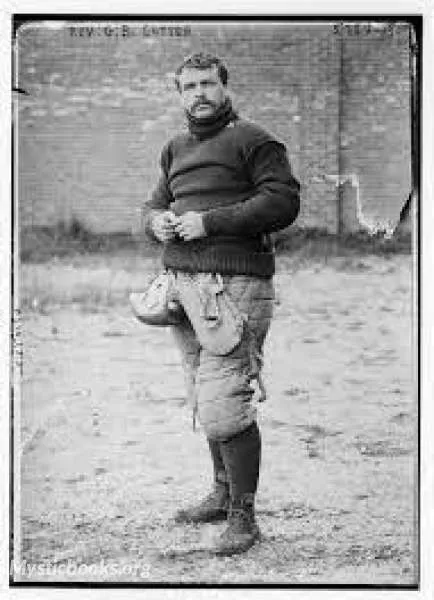
Timeline
Title
Country/Nationality
George Barton Cutten
George Barton Cutten was a Canadian-born psychologist, moral philosopher, historian and university administrator. He was president of Acadia University from 1910 to 1922 and Colgate University from 1922 to 1942.
Born in Amherst, Nova Scotia, the son of a stipendiary magistrate, he was uncertain about what path his life should take. He had various jobs including reporter, salesman, and pipe fitter before his uncle locked him in a room, refusing to let him out until he agreed to go to university. By the fall of 1892, he had enrolled at Acadia University, Wolfville, where he joined the varsity rugby team and within three years had led the team to victory over rival Dalhousie University in 1895. He earned his BA in 1896 and a year later he was ordained a Baptist minister.
He went on to Yale University and by 1902 he had earned a degree in divinity and a PhD in psychology. There he continued his outstanding career as a football player and, on Sundays, served as a preacher at local churches. His thesis was titled The Psychology of Alcoholism which was published, in revised form, in 1907. He was appointed professor of moral philosophy, but returned to Wolfville in 1910 to accept a position as president of the university. For more than a decade at Acadia, he actively supported the university’s sporting programs and opened the Memorial Gym in 1920, a facility which continues to function today.
At the onset of the First World War, Cutten took time off to recruit for the war effort. In February 1916, he asked the board at Acadia to grant him, "a leave of absence to enable him to pursue recruitment full time" This leave would be extended to June 1917, and Cutten then took another leave to go to Halifax and help the city recover from the Halifax Explosion. Cutten actively encouraged students of Acadia to join the war effort as well. He would later become embroiled in a feud with Sir Sam Hughes over the breaking up of Nova Scotian battalions in order to reinforce other provincial battalions.
After twelve years at Acadia, in 1922 he moved to Hamilton, New York where he had accepted the presidency of Colgate University. He altered the university admissions policy to block the admissions of African Americans and severely limited the admissions of Jewish students. Finding the university’s financial affairs in disorder he set out to turn its finances around. For the next seventeen years the school declared a surplus, in the meantime doubling its faculty, plant and assets. His football teams also won championships. In 1928, he introduced the "Colgate Plan," an influential curriculum.
He retired from Colgate in 1942.
In his retirement, Cutten devoted his efforts to a vocation entirely divorced from his academic pursuits. Arising from an interest in American silver which began in the 1930s, in which he amassed one of the finest private collections of his time, he published several pioneering works on the history of silver design and manufacture.
He was married to Minnie W. Brown who shared his passion for silver and contributed to his books on the subject. They had four children. He died in 1962.
Books by George Barton Cutten

The Psychology of Alcoholism
After presenting an overview of alcoholism and its affect on society, Dr. Cutten dives into the effects of chronic alcoholism on physiology, the nervous system, memory, intellect, will, emotions, senses that affect the individual's morals and sanity....